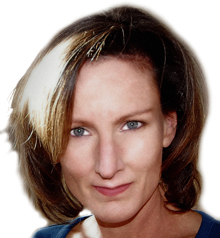Information Underload
A colleague recently emailed me a blog entry entitled Kentucky Post closes print, goes online. The erstwhile newspaper would henceforth exist virtually, populated by repurposed content from an affiliated TV station, freelancers, a lone reporter and “contributions from citizen journalists.”
Citizen journalism was not offered when I went to school. Instead, they made us learn pesky little things like law, history, economics, ethics, research, sourcing, math, verification, design, spelling, grammar and factchecking--little things that keep the living from being listed in the obituaries.
Around the time The Kentucky Post was going virtual, the FCC was moving to make broadcasters beef up local news and public affairs programming. The logic is that broadcasters owe the government, i.e., the public, for using the public airwaves. The extension of that logic is that the public wants more local news and public affairs, but empirical evidence suggests otherwise. Think Book TV versus American Gladiators.
There are other loose ends to the logic. The FCC would have broadcasters answer to a permanent community board charged with determining what was in the best interest of the local public. They would be more like deputized citizen journalists, if you will, rather than traditional editorial advisory boards.
Such bodies of would likely consist of civic leaders and business people. The biggest business in my hometown of fewer than 5,000 people surreptitiously dumped thousands of gallons of trichloroethylene into the local drinking water supply.
A WILEY DILEMMA
The point of news, particularly before it was commoditized in the rampant abuse of capitalistic principles two decades ago , was to tell on people who dumped solvent into drinking water. I am wildly optimistic to the point of naivete about many, many things, but editorial control by a small sovereign gives me pause.
Take cell phone millionairess and newspaper hobbyist Wendy McCaw, who bought the Santa Barbara News-Press in 2000 to promote local journalism before firing two veteran reporters for being “anti-coyote.” (A court later determined anti-coyoteism was not legal grounds for firing.)
It was also testified in court that McCaw considered the opening of a new hardware store in Santa Barbara to be “news,” and a lawsuit against the publisher of the local newspaper...not so much.
Our culture does not value the uncomfortable contradictions of news the way it did after World War II, when informed disagreement was preferable to the horrible possibilities of somnambulant conformism. Debate, intellectual rigor and dissent arguably saved the world. We have since grown intolerant of discomfort, and ever more provincially focused. Everything must reinforce our self-esteem.
News is apparently there to tell us our assumptions are correct, and those with whom we disagree are wrong. Debate has devolved into hysterical fomenting, which unfortunately makes for much more lively television than a round table of academics actually making sense. This brings us back to the premise that people want more local news on TV.
If that were so, there would be more local news on TV, because people who watch TV determine what is on TV with the help of Nielsen ratings. If people really wanted more local news, local newspapers wouldn’t be drying up like the Yangtze below Three Gorges.
The money follows the eyeballs more than ever, so if broadcasters are forced to do more revenue-free programming, what comes of it? More faux journalism? More consolidation? More prerecorded news-like product? The state of the journalism is certainly not a pretty sight right now. Maybe somebody shouldn’t oughta pass a law that could make it even worse.
Deborah D. McAdams welcomes your comments at dmcadams@nbmedia.com.

Get the TV Tech Newsletter
The professional video industry's #1 source for news, trends and product and tech information. Sign up below.
